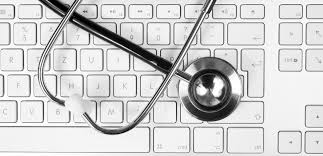Essential Qualifications for a Accomplished Medical Billing and Coding Career: What You Need to no
Embarking on a career in medical billing and coding can be a rewarding journey with numerous opportunities for growth and specialization in the healthcare industry. As the backbone of medical reimbursement,professionals in this field ensure that healthcare providers are accurately compensated for their services. But what qualifications do you need to excel in this dynamic profession? In this complete guide, we’ll explore the essential skills, certifications, experience, and tips to help you succeed in medical billing and coding.
Introduction
The healthcare industry is rapidly evolving, with medical billing and coding standing out as a vital component that keeps the financial aspect of healthcare functioning smoothly. Whether you’re considering a new career path or aiming to advance in this field, understanding the qualifications required is crucial. This article provides a detailed overview of the educational background, technical skills, certifications, and practical experience needed to thrive in medical billing and coding.
Key Qualifications for a Successful Medical Billing and Coding career
1. Education and Formal Training
While a high school diploma or equivalent is the minimum requirement, most successful medical billing and coding professionals pursue specialized training or post-secondary education. Here’s what you need:
- High School Diploma or GED: Basic educational qualification to start with.
- Post-secondary Certificates or Degrees: Many opt for certificate programs in medical billing and coding, which typically take 6 months to 1 year. Associate degrees (2 years) are also advantageous and can provide a broader understanding of healthcare administration.
These programs cover essential topics such as medical terminology, anatomy, healthcare documentation, health insurance processes, and coding systems.
2. Strong Knowledge of Medical Terminology and Human Anatomy
Accurate coding depends on a solid understanding of medical language and human anatomy. key points include:
- Interpreting clinical notes and documentation accurately
- Understanding medical procedures and conditions
- Familiarity with anatomy to distinguish between similar codes
3. Familiarity with Coding Systems
Proficiency in coding standards is essential for compliance and reimbursement. Major coding systems include:
| System | Description | Usage |
|---|---|---|
| ICD-10-CM | International Classification of Diseases, Tenth Revision, Clinical Modification | Diagnoses coding |
| CPT | Current Procedural Terminology | Procedures and services coding |
| HCPCS | healthcare common Procedure Coding System | Supplies, equipment, and maxi-codes |
Staying updated with coding guidelines and annual revisions is critical.
4. Technical Skills and Software Knowledge
Proficiency with healthcare management software and coding tools is indispensable. Core skills include:
- Electronic Health Record (EHR) systems
- Medical billing software (e.g., Kareo, AdvancedMD)
- Microsoft Office Suite (Word, Excel)
- Data entry accuracy and attention to detail
5. Attention to Detail and Analytical Skills
Precision is key in coding to avoid claim denials or legal issues. Crucial traits are:
- Meticulous review of medical records
- Analytical thinking to select the correct codes
- Problem-solving skills for complex cases
6. Communication and Interpersonal skills
Effective communication with healthcare providers and insurance companies helps resolve billing issues promptly. Skills include:
- Clear written and verbal communication
- Negotiation skills for claim appeals
- Professionalism and confidentiality
7.licensing and Certification
Though not always mandatory, certification significantly boosts employability and credibility. Recommended certifications include:
| Certification | Issuing Institution | Benefits |
|---|---|---|
| Certified Professional Coder (CPC) | American Academy of Professional Coders (AAPC) | Industry recognition and higher salary potential |
| Certified coding Associate (CCA) | American Health Data Management Association (AHIMA) | Entry-level certification with widespread acceptance |
| Certified Medical Reimbursement Specialist (CMRS) | American Medical Billing Association (AMBA) | Focuses on billing and reimbursement procedures |
Obtaining and maintaining certifications demonstrate your competence and commitment to continuous learning.
Practical Tips to Build a successful Medical Billing and Coding Career
- Invest in quality training programs from accredited institutions
- Gain hands-on experience through internships or volunteering
- Stay current with industry updates and coding changes
- Network with industry professionals through conferences and online forums
- Develop strong organizational and time-management skills
- Maintain confidentiality and adhere to HIPAA regulations
Case Study: From Novice to Expert
Jane Doe, a certified medical coding professional, started with a simple certification and basic training. Over two years, by gaining practical experience and earning her CPC certification, she secured a position at a reputable healthcare provider. Her success underscores the importance of continuous education and certification in advancing a medical billing and coding career.
Benefits of a Career in Medical Billing and Coding
- High demand with steady job growth
- Flexible work arrangements, including remote positions
- Opportunities for specialization and advancement
- Contribution to improving healthcare efficiency and accuracy
- Potential for rewarding salaries with experience and certification
Conclusion
Embarking on a successful career in medical billing and coding requires a combination of formal education, technical knowledge, and professional certifications. Developing a keen understanding of medical terminology,coding systems,and healthcare software,coupled with strong attention to detail and excellent communication skills,positions you for success in this vital healthcare role. Whether you’re just starting or looking to advance, investing in the right qualifications and practical experience will help you thrive in this growing industry.Remember, continuous learning and networking are key to staying ahead in the ever-evolving world of medical billing and coding.



